Filter by

Don Carlos Infante of Spain
Schiller’s Don Carlos, written ten years before his great Wallenstein trilogy, testifies to the young playwright’s growing power. First performed in 1787, it stands at the culmination of Schiller’s formative development as a dramatist and is the first play written in his characteristic iambic pentameter. Don Carlos plunges the audience into the dangerous political and personal struggles t…
- Edition
- -
- ISBN/ISSN
- 9781783744480
- Collation
- -
- Series Title
- -
- Call Number
- 792 SCH d
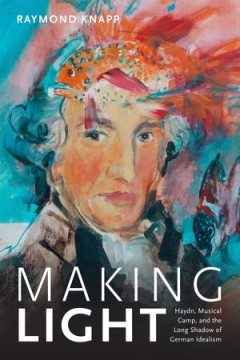
Making Light: Haydn, Musical Camp, and the Long Shadow of German Idealism
In Making Light Raymond Knapp traces the musical legacy of German Idealism as it led to the declining prestige of composers such as Haydn while influencing the development of American popular music in the nineteenth century. Knapp identifies in Haydn and in early popular American musical cultures such as minstrelsy and operetta a strain of high camp—a mode of engagement that relishes both the…
- Edition
- -
- ISBN/ISSN
- 9780822369356
- Collation
- -
- Series Title
- -
- Call Number
- 780 KNA m

The Barter Theater Story: Love Made Visible
Published in 1982, The Barter Theatre Story: Love Made Visible tells the colorful history of a remarkable American cultural institution. Opened by Robert Porterfield, a native Virginian, in 1933, the Barter Theatre offered the people of Abingdon, Virginia, and the surrounding area entertainment and a much-needed escape from their Depression-era working lives. It became the State Theatre of Virg…
- Edition
- -
- ISBN/ISSN
- 9781469638157
- Collation
- -
- Series Title
- -
- Call Number
- 792 DAW b
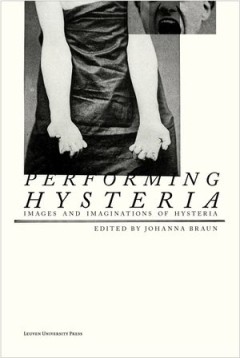
Performing Hysteria: Images and Imaginations of Hysteria
Cross-disciplinary analysis of contemporary images and representations of hysteria We seem to be living in hysterical times. A simple Google search reveals the sheer bottomless well of “hysterical” discussions on diverse topics such as the #metoo movement, Trumpianism, border wars, Brexit, transgender liberation, Black Lives Matter, COVID-19, and climate change, to name only a few. Against…
- Edition
- -
- ISBN/ISSN
- 9789461663139
- Collation
- -
- Series Title
- -
- Call Number
- 792 PER p
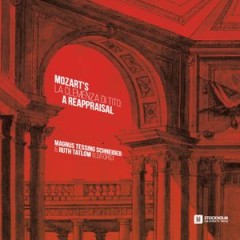
Mozart'S 'La Clemenza Di Tito': a Reappraisal
"In the two centuries since Mozart’s La clemenza di Tito was first performed, and the almost three centuries since Metastasio created the libretto, many rumours, myths and prejudiced opinions have gathered around the work, creating a narrative that Mozart, Mazzolà and their contemporaries would scarcely recognise. The essays in this book contribute ideas, facts and images that will draw the …
- Edition
- -
- ISBN/ISSN
- 9789176350553
- Collation
- -
- Series Title
- -
- Call Number
- 792 MOZ m
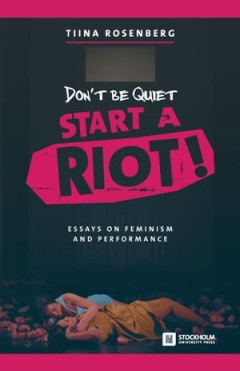
Don’t Be Quiet, Start a Riot! Essays on Feminism and Performance
This collection of essays investigates elements of the human voice and performance, and their implications for gender and sexuality. The chapters address affect, pleasure, and memory in the enjoyment of musical and theatrical performance. Rosenberg also examines contemporary feminist performance, anti-racist interventions, activist aesthetics, and political agency especially with regard to femi…
- Edition
- -
- ISBN/ISSN
- 9789176350232
- Collation
- -
- Series Title
- -
- Call Number
- 792 TII d
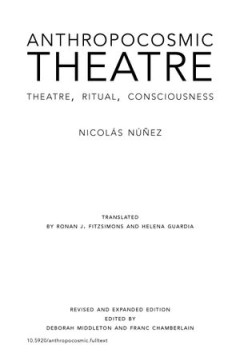
Anthropocosmic Theatre:
This new edition of Núñez’s Anthropocosmic Theatre contains the text of the original English translation plus additional contributions from Núñez and others. In part one, Núñez traces his researches in Nahuatlan, Tibetan and western theatre, to arrive at his design for a theatre of the human in the cosmos. Part Two explores how this work has developed, during the last three decades, int…
- Edition
- -
- ISBN/ISSN
- 9781862181601
- Collation
- -
- Series Title
- -
- Call Number
- 792 NUN a
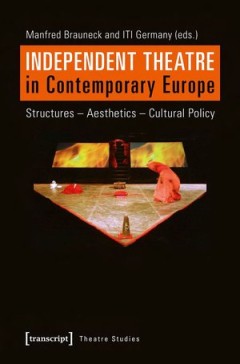
Independent Theatre in Contemporary Europe: Structures Aesthetics Cultural Po…
Over the past 20 years European theatre underwent fundamental changes in terms of aesthetic focus, institutional structure and in its position in society. The impetus for these changes was provided by a new generation in the independent theatre scene. This book brings together studies on the state of independent theatre in different European countries, focusing on the fields of dance and perfor…
- Edition
- -
- ISBN/ISSN
- 9783837632439
- Collation
- -
- Series Title
- -
- Call Number
- 792 IND i
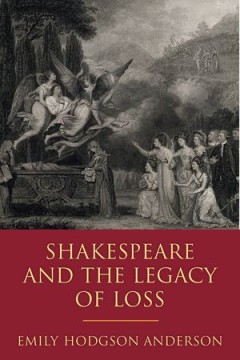
Shakespeare and the Legacy of Loss
How do we recapture, or hold on to, the live performances we most love, and the talented artists and performers we most revere? Shakespeare and the Legacy of Loss tells the story of how 18th-century actors, novelists, and artists, key among them David Garrick, struggled with these questions through their reenactments of Shakespearean plays. For these artists, the resurgence of Shakespeare, a pl…
- Edition
- -
- ISBN/ISSN
- 9780472130931
- Collation
- -
- Series Title
- -
- Call Number
- 792 EMI s
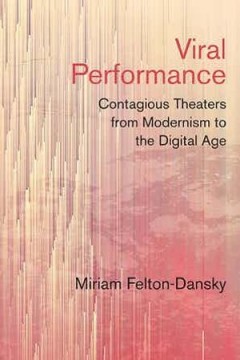
Viral Performance: Contagious Theaters from Modernism to the Digital Age
This volume proposes the viral as a means of understanding socially engaged and transmedial performance practices since the mid-20th century. It rethinks the Living Theatre’s Artaudian revolution via the lens of affect theory, brings attention to General Idea’s media-savvy performances of the 70s, explores Franco and Eva Mattes and Critical Art Ensemble, and surveys the dramaturgies and pol…
- Edition
- -
- ISBN/ISSN
- 9780810137165
- Collation
- -
- Series Title
- -
- Call Number
- 792 DAN v
 Computer Science, Information & General Works
Computer Science, Information & General Works  Philosophy & Psychology
Philosophy & Psychology  Religion
Religion  Social Sciences
Social Sciences  Language
Language  Pure Science
Pure Science  Applied Sciences
Applied Sciences  Art & Recreation
Art & Recreation  Literature
Literature  History & Geography
History & Geography